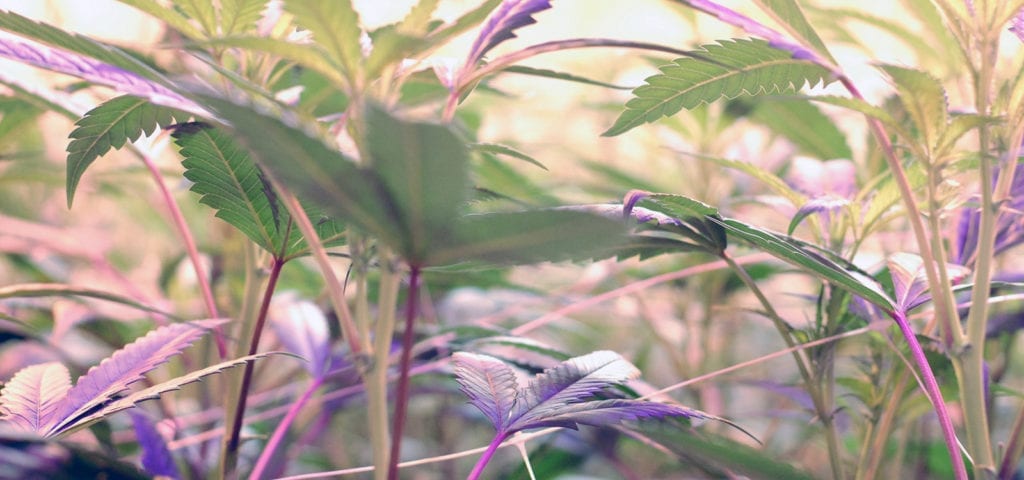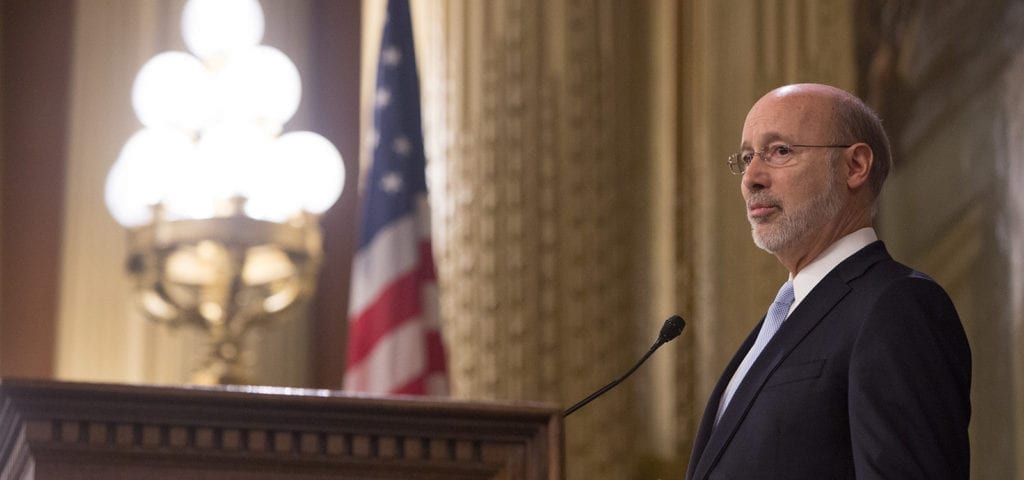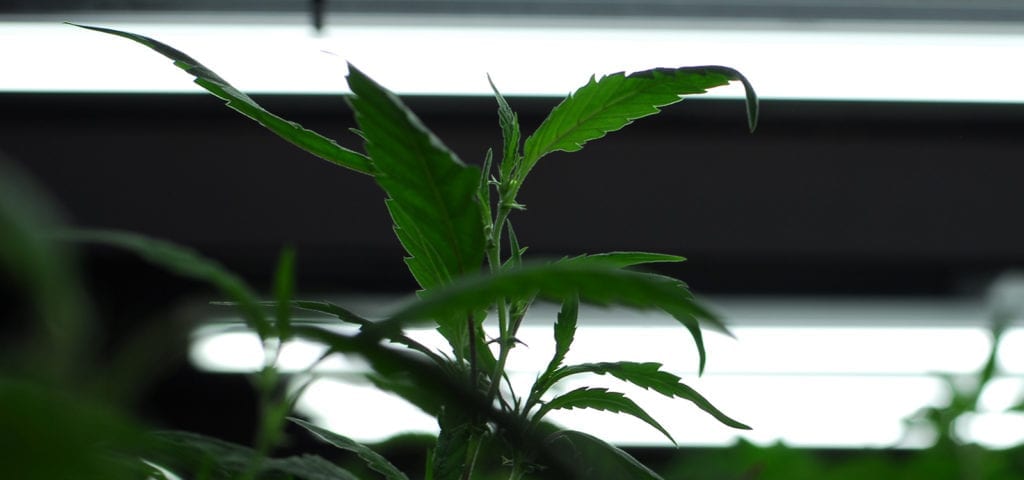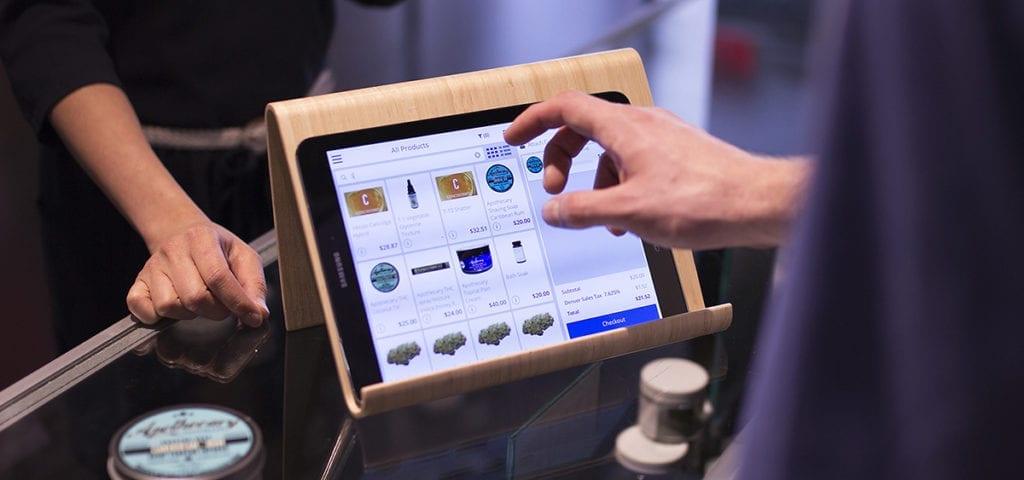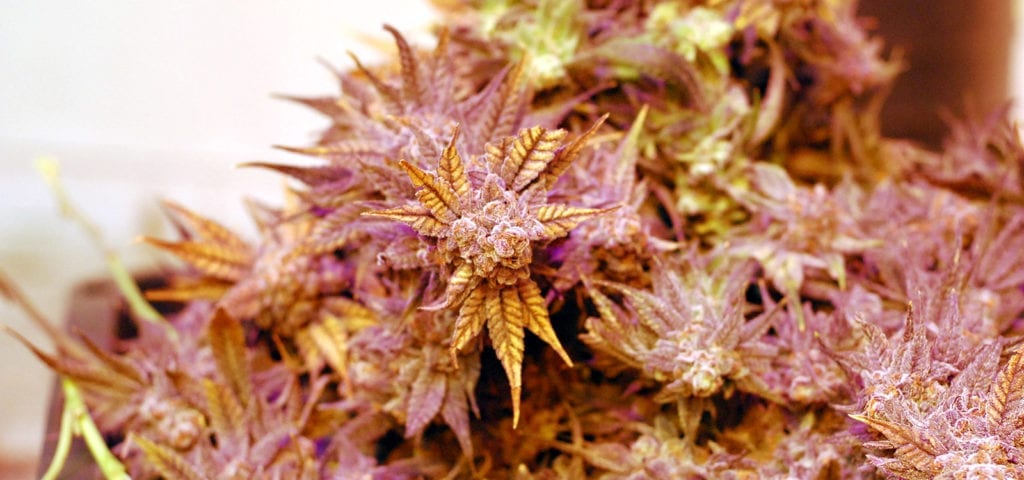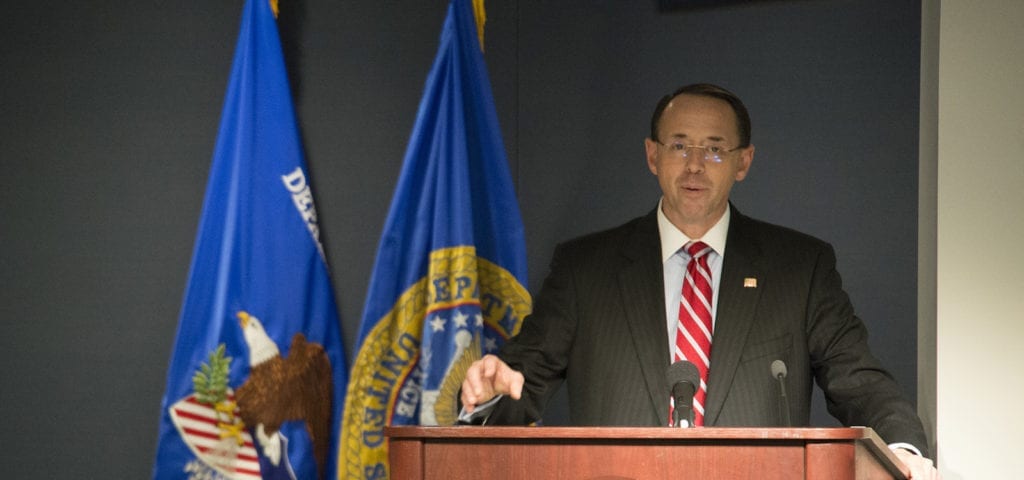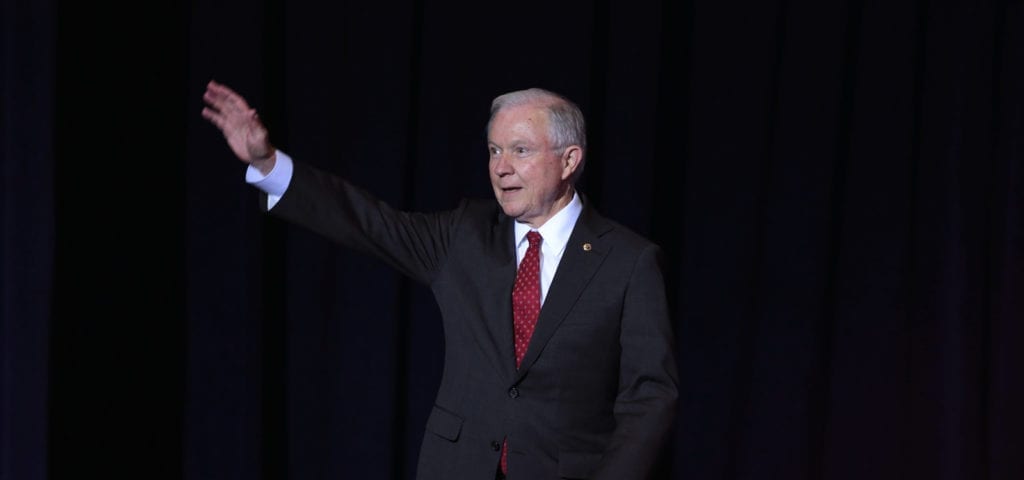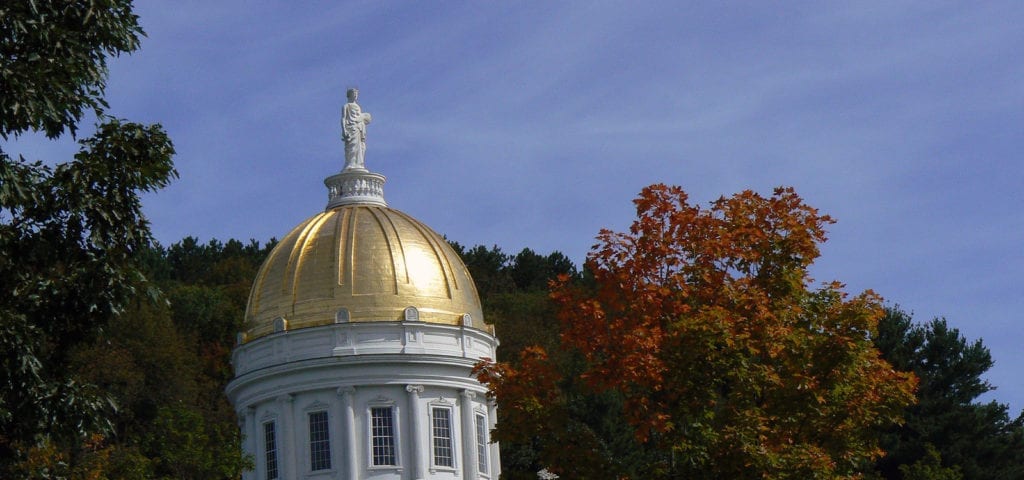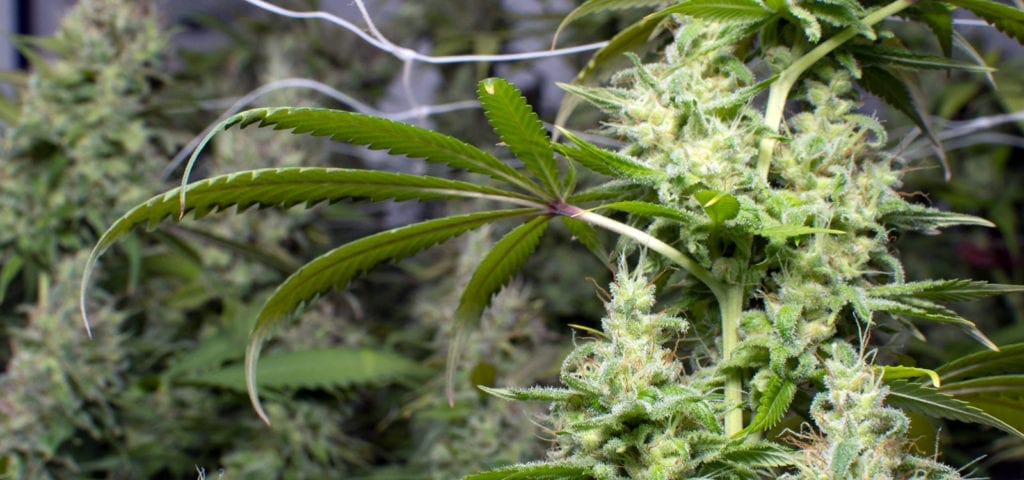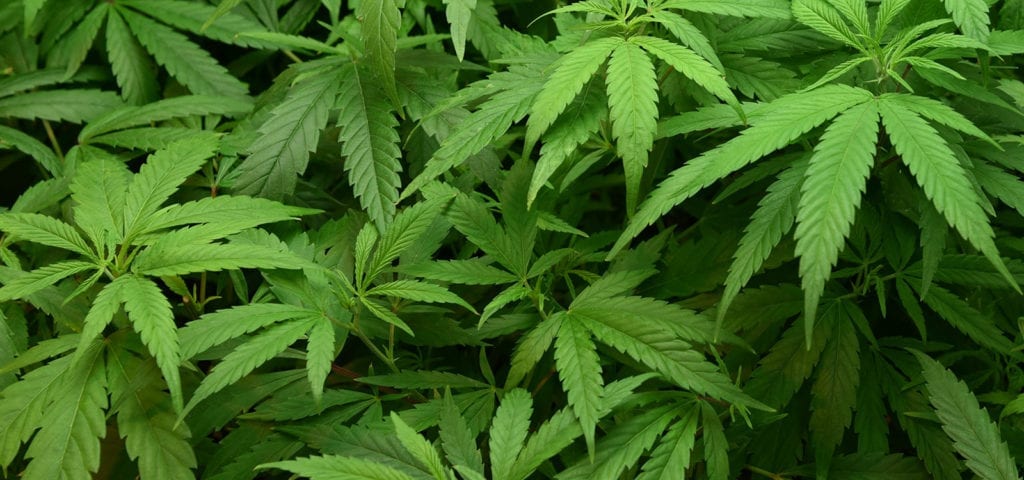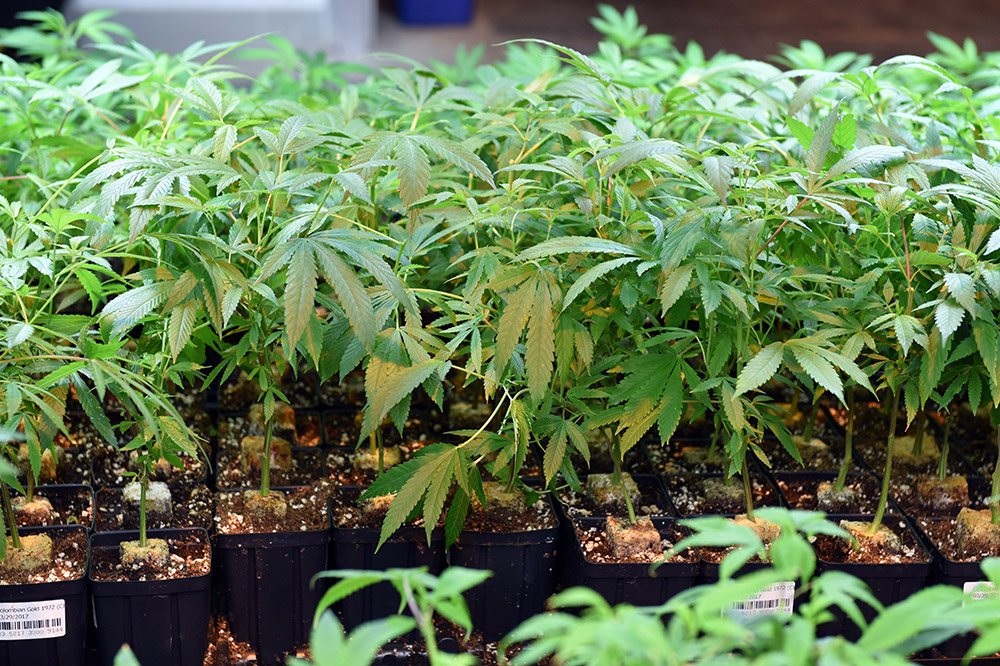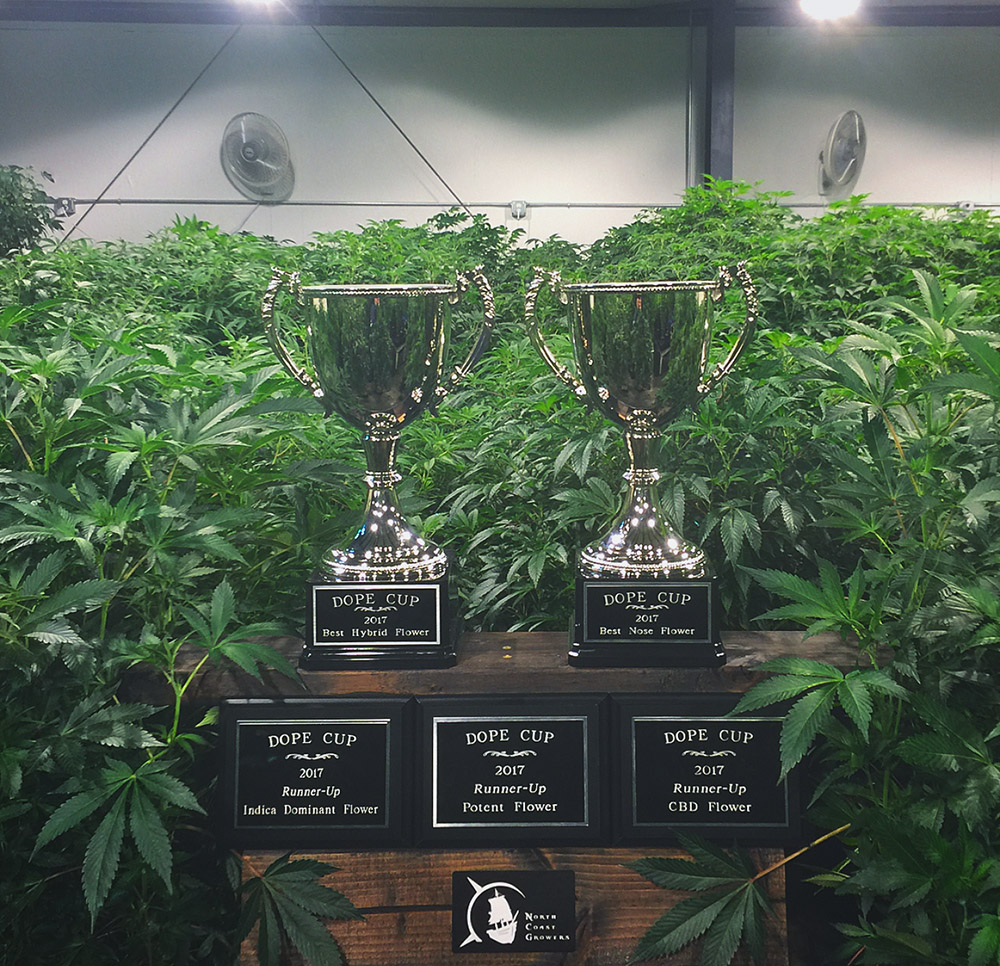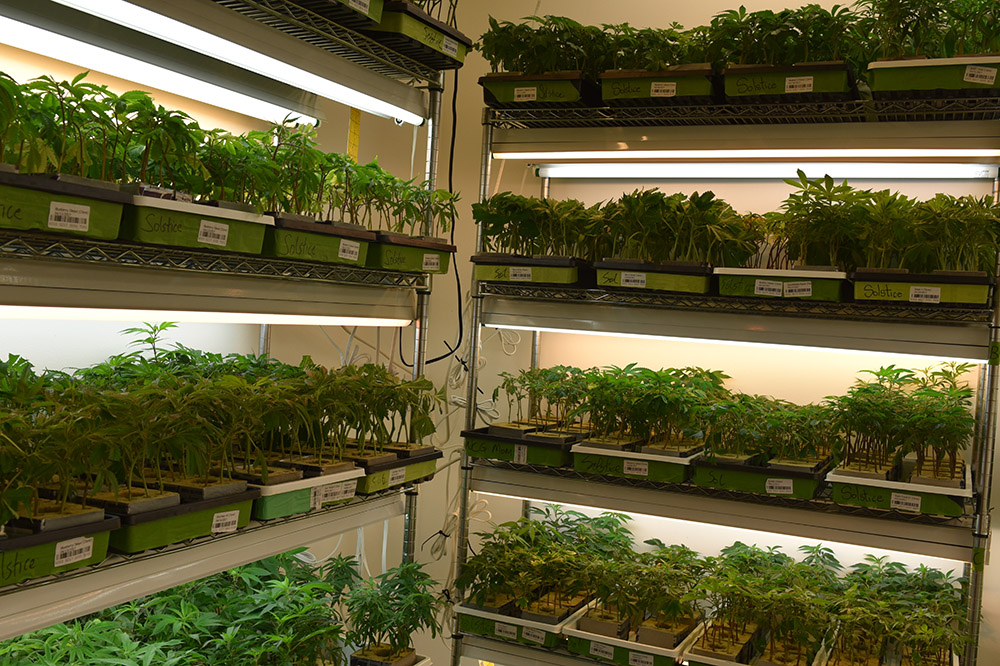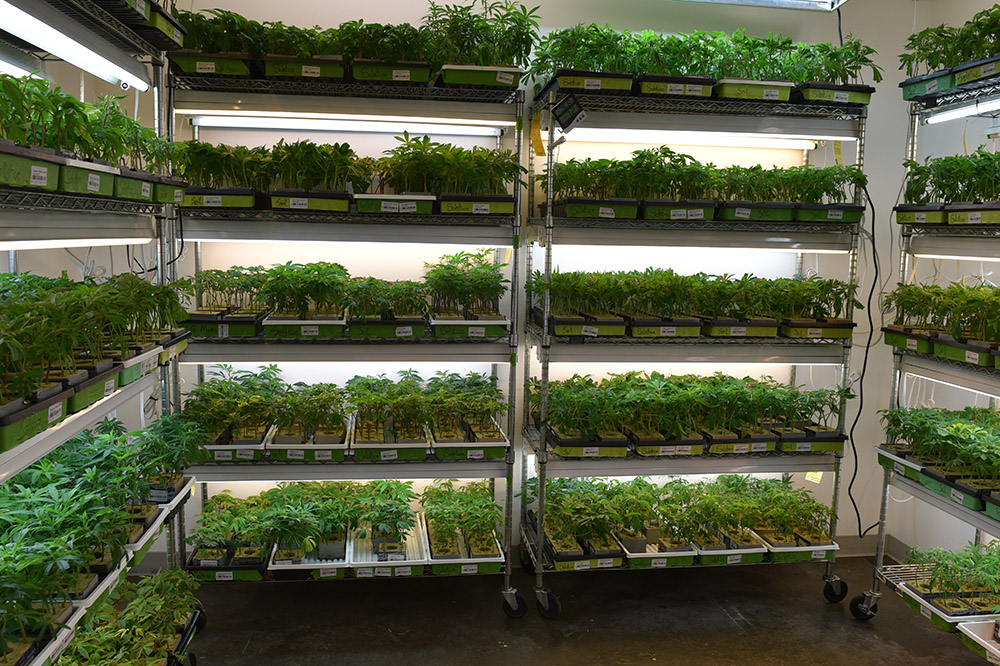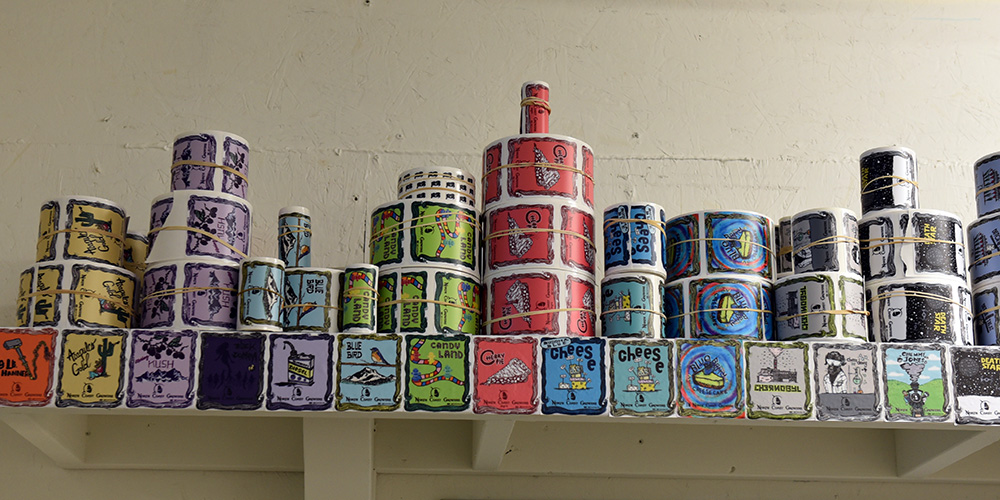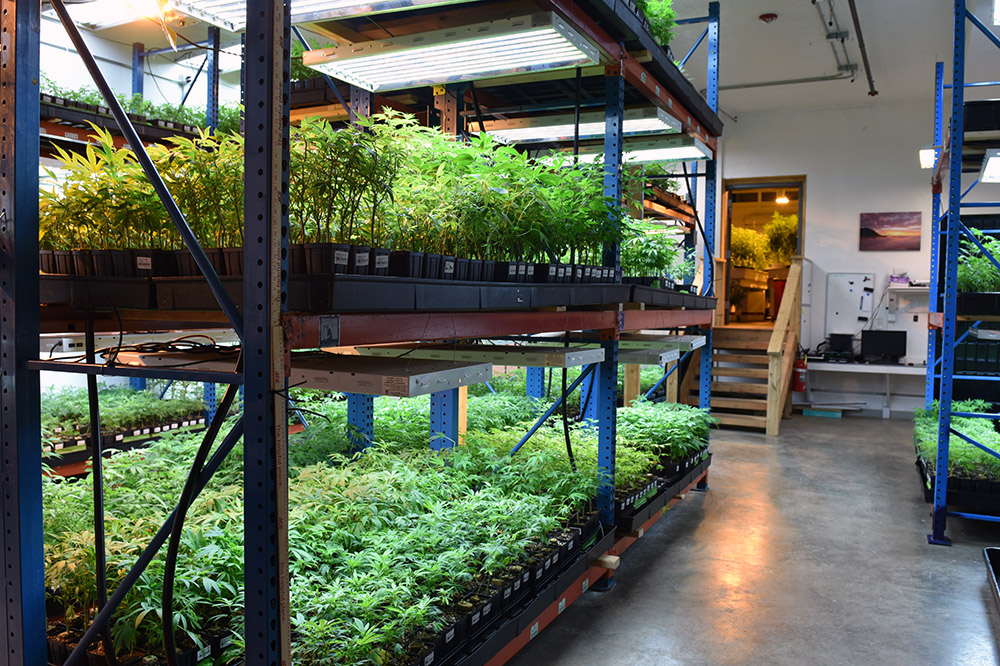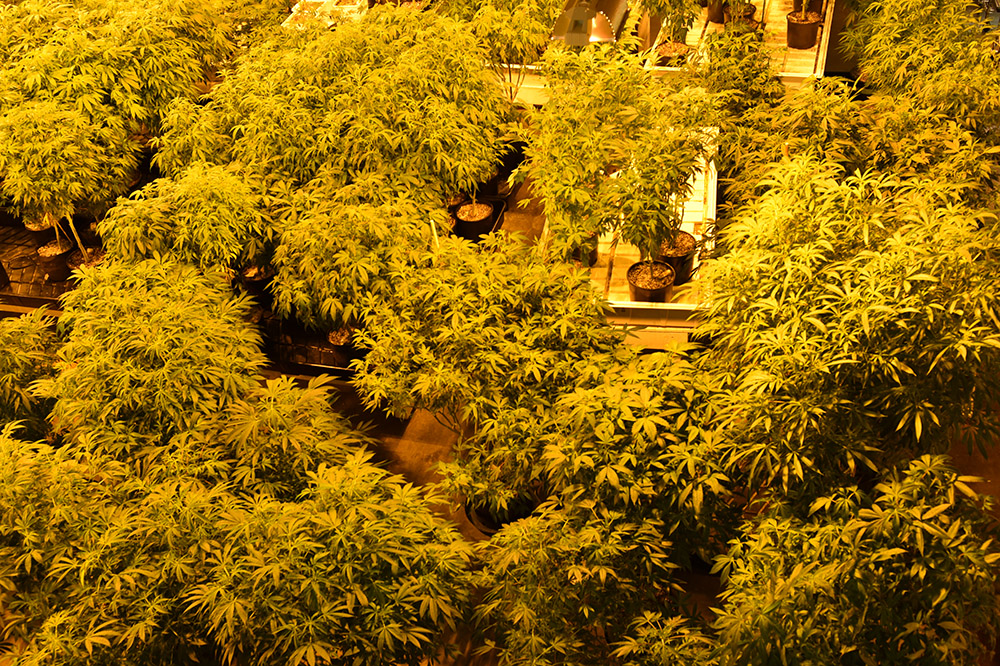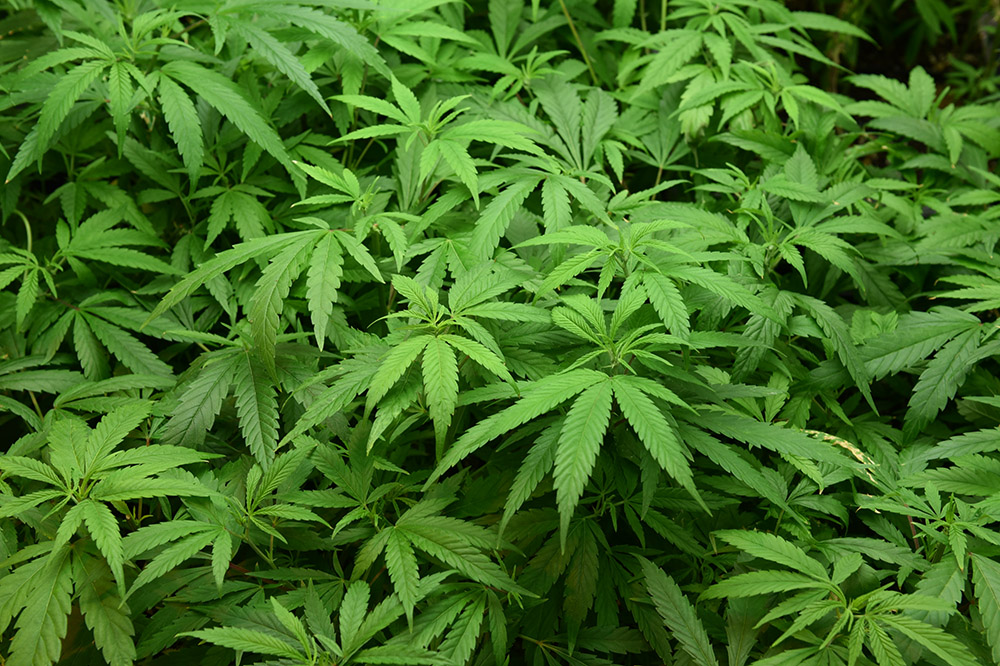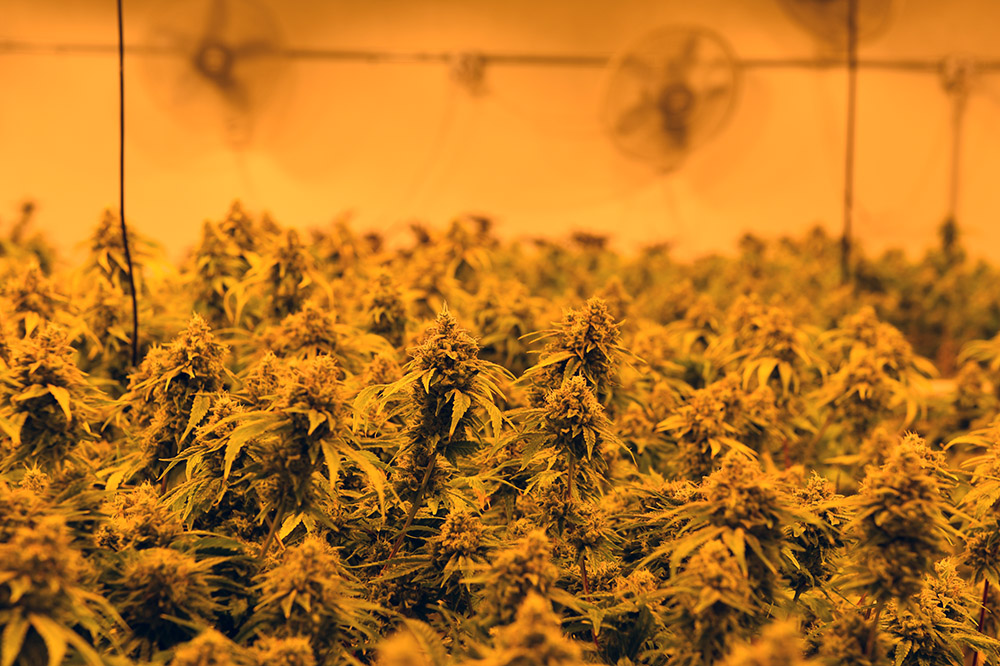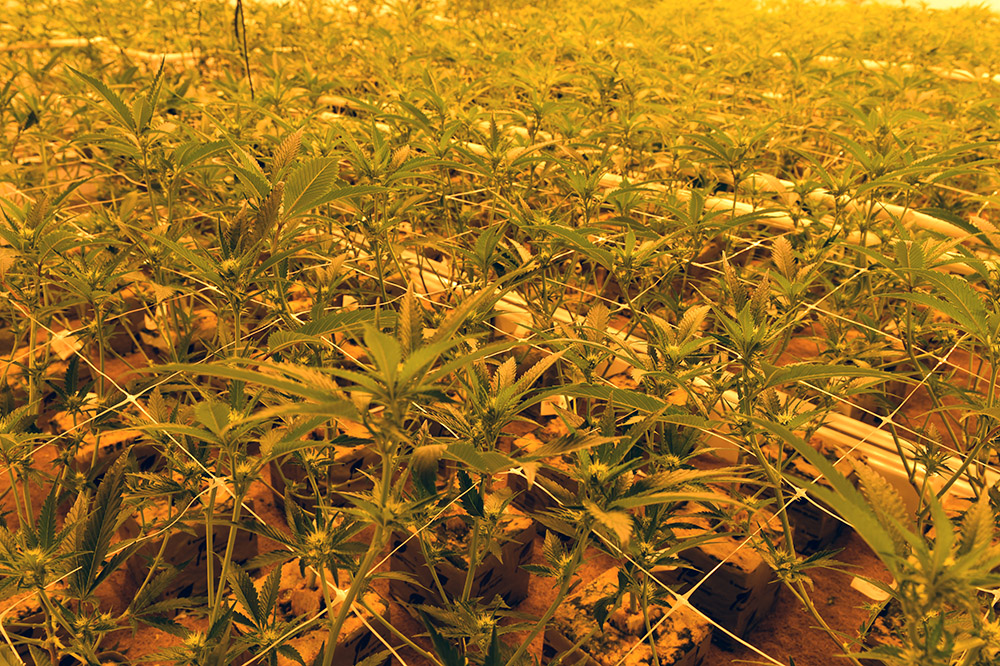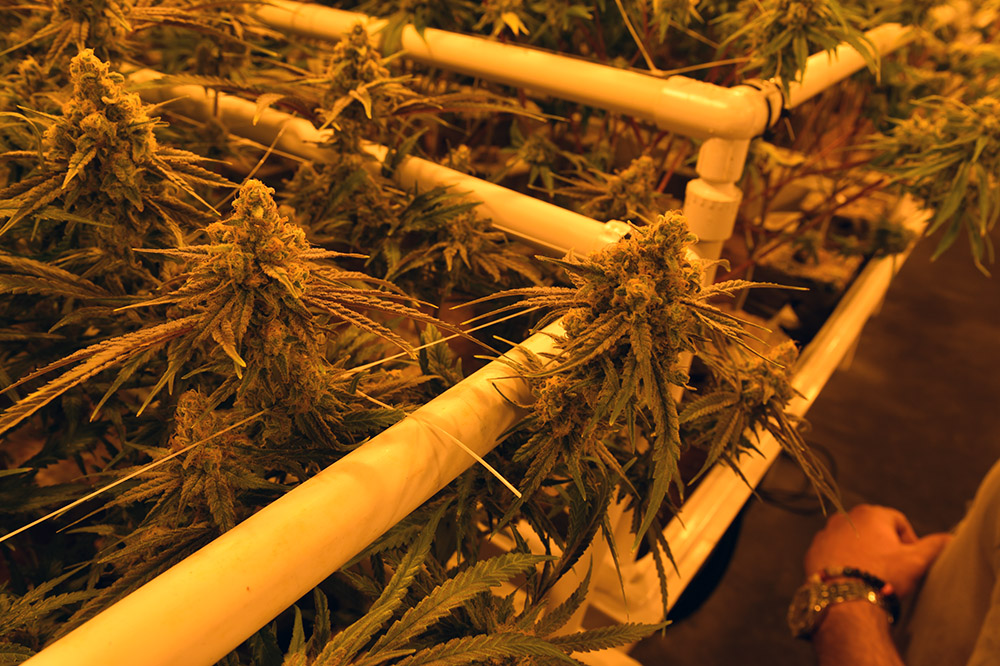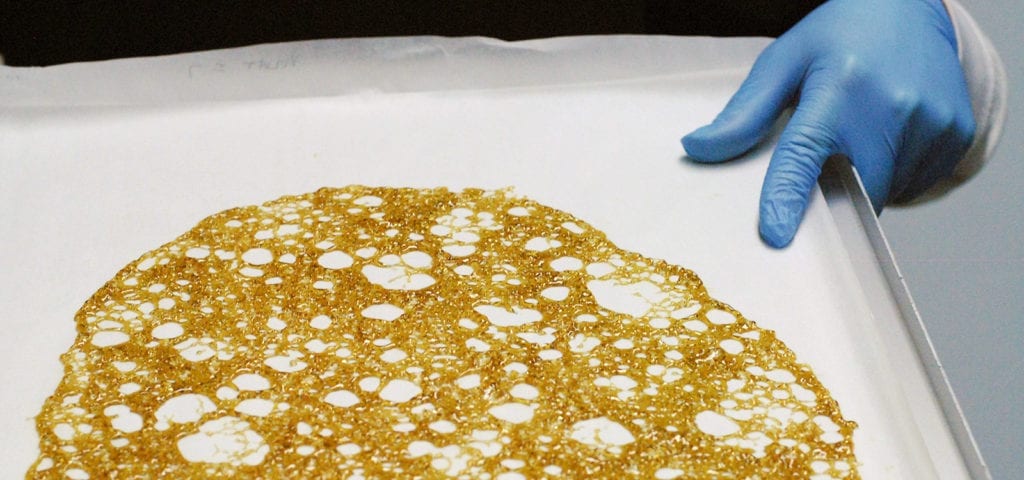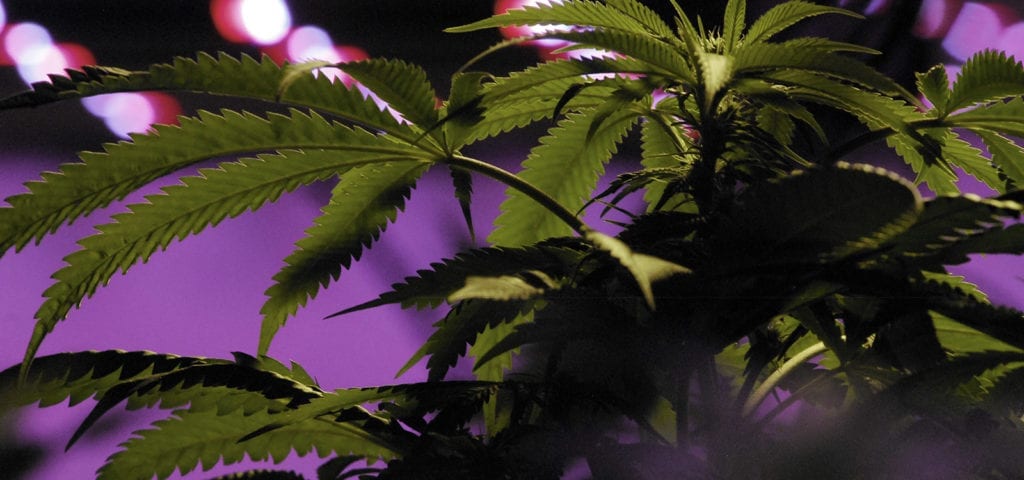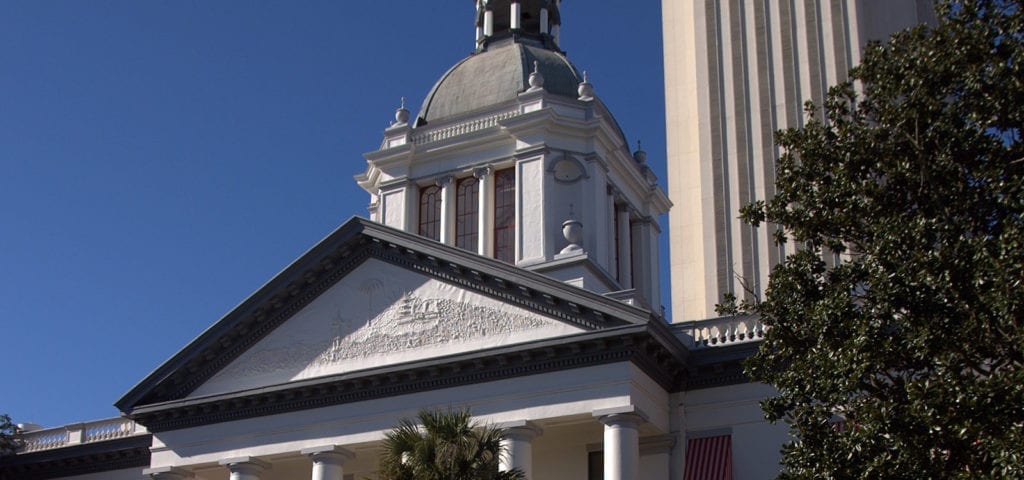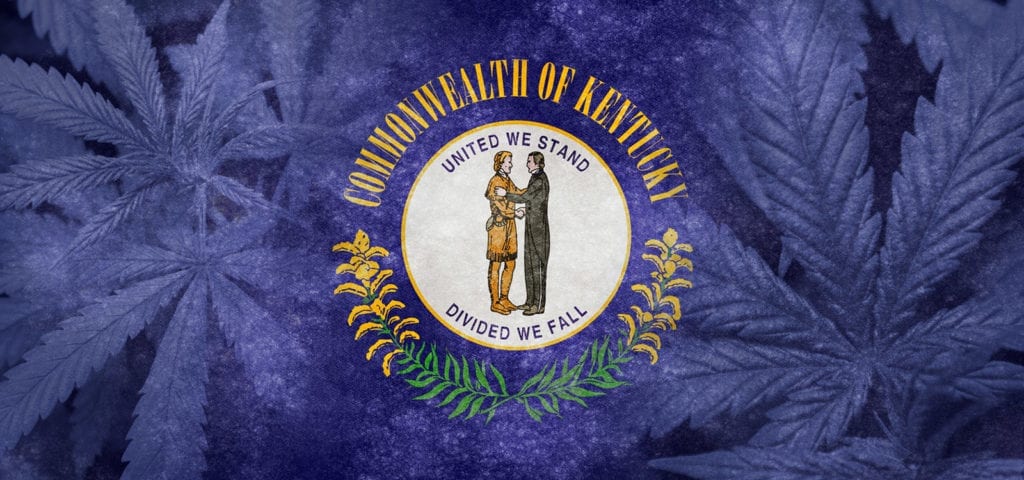Kristi Knoblich Palmer is the COO of Kiva Confections, a pioneering force in California’s cannabis edibles marketplace, and is a founding member of the California Cannabis Manufacturers Association (CCMA).
In the following episode, Ganjapreneur.com podcast host TG Branfalt speaks with Kristi about the founding of Kiva Confections, training to become an expert chocolatier, and California’s medical (and soon-to-be recreational) cannabis industry’s scramble towards a regulatory structure. The two also discuss the growing trend of micro-dosing cannabis, the founding and current goals of the CCMA, and much more.
Listen to the podcast interview below, or continue scrolling down to read a full transcript of this week’s episode.
Listen to the podcast:
Read the transcript:
TG Branfalt: Hey there. I’m your host TG Branfalt and you’re listening to the Ganjapreneur.com podcast where we try to bring you actionable information and normalize cannabis through the stories of ganjapreneurs, activists, and industry stakeholders. Today I’m joined by Kristi Knoblich Palmer. She is the chief operating officer of Kiva Confections and the founder of the California Cannabis Manufacturers Association.
How are you doing this morning, Kristi?
Kristi Knoblich Palmer: I’m great. How are you?
TG Branfalt: I’m well. I’m well. Sort of celebrating West Virginia’s success yesterday. They’re knocking on the door of medicinal. It just needs to be signed by the governor so you know, the 26th state. Looking good today, huh?
Kristi Knoblich Palmer: Looking good. We have a lot to celebrate this week. We really do.
TG Branfalt: Excellent. So I want to get right into it. Tell me a little bit about yourself, your background, and how you got started in the cannabis space.
Kristi Knoblich Palmer: Certainly. Yeah, so my partner, Scott, and I, we’re now partners in business and partners in life. We started off in 2010, starting Kiva as a business out of our home, in our home kitchen in the Bay Area here, California. Really we saw an opportunity for a better cannabis edible.
There wasn’t anything out there that was packaged professionally or labeled, nothing that we would want to bring home or, I always put things through the mother-in-law filter. There were no products out there that I would give to my mother-in-law.
Yeah, we got started with the testing labs. I’m developing formulas, and a brand, and a design for our company. We’ve grown it from there.
I don’t have a background in food science, or I’m not a baker, anything like that. Scott and I actually met in photography school in Santa Barbara. I guess we are just opportunists, I would say.
TG Branfalt: I had read that you were actually mentored by an Ohio chocolatier at a 100-year-old factory?
Kristi Knoblich Palmer: Yeah. Yeah. Yeah, so we started our company with the chocolate bars and we got feedback. People use their hands. Of course, you can’t see but they were indicating little pieces. They’d hold one hand in a cup and then they’d use the other one and indicate, “Oh, we want little pieces for your next product.”
We took that feedback and started looking at a chocolate-covered center. Scott loves chocolate-covered espresso beans so we thought we’d start there.
TG Branfalt: As do I.
Kristi Knoblich Palmer: Yeah, right? Who doesn’t? So that would allow us to, for the first time, really breakdown the dose. Get just a small amount of THC so that people could pop off the lid, eat just one, and go from there.
That product is particularly difficult to make so we went out and learned from who we dub “the panning guru” out of this really old chocolate manufacturing facility, which I think at that time we were in 2,500 square feet. They were in like 100,000 square feet.
So when we got to the facility we couldn’t believe our eyes but we spent a couple days out there. Actually, it wasn’t a couple days; it was one day. The apprentice for the guy who was teaching us, the apprentice, he laughed when we got there. He said, “There’s just no way you are going to learn to pan in a day.”
But we took studious notes and we brought the knowledge, what little knowledge we had adsorbed, and then made our period back to the Bay Area and started practicing, and eventually got it down to an art as well.
TG Branfalt: So did you tell them that you were going to introduce, that you were making a cannabis-infused chocolate?
Kristi Knoblich Palmer: We did, yes.
TG Branfalt: And what was the response?
Kristi Knoblich Palmer: Well, Kevin was really excited. Kevin was the panning guru, kind of a hippy sort of guy, and a little rough around the edges, great personality. He thought it was awesome and he was particularly excited when we invited him out to our facility to continue to train our team and to work with us on our equipment. It paid off for him in a few ways.
TG Branfalt: I want to kind of go back a little bit. I love that story. That’s why I kind of wanted to get to that early but when you started out in 2010, you know you said you don’t have a background in food science, you’re not a baker. How did you overcome some of the early challenges, not just with building the business but also with complying with regulations and that sort of thing out in California?
Kristi Knoblich Palmer: Complying with regulations was very simple because there weren’t any. That was a pretty low bar to cross.
You know, back in 2010, cottage and home-based businesses were the way to do it. We were fortunate. I grew up in the Bay Area so Scott … in a house that I grew up in. It was 2010; we were young and we didn’t have lot to lose.
We didn’t own homes, no kids. We weren’t married or anything so we didn’t have very, we couldn’t really go much further down. There was only up to go.
So with lots of roommates and family support, we put our family to work for us and paid them in chocolate and pizza.
We got going from there. Some of the hurdles, I would say a lot of the hurdles that exist today absolutely did not exist back then. That’s part of what motivates me and motivates us and I think the other members of our association as well, is because we all got to get started in an environment that was basically unregulated.
It encourages mom-and-pop, small businesses, home kitchen entrepreneurs who are looking for something different and have a lot of passion but maybe not a lot of expertise or money to become compliant.
TG Branfalt: How did you adapt? Like how did you adapt to the regulations?
Kristi Knoblich Palmer: Well, in California we really still don’t have regulations, which when I say that out loud it sounds crazy because we have medical laws that were signed by the governor. And then now we have recreational laws that were voted in.
Now we have a bill that it’s going to bridge the gap between the two but we still really don’t have anything that’s telling. We still don’t have that playbook.
We don’t have guidance on how many milligrams of THC should be in a product. We don’t have guidance on what kind of testing we should do and at what point in time. So there’s still a lot of gray area.
How have we been able to “become compliant”? You know, we’ve created our own standards along the way and basically it’s what you would do in the food world, right?
So Lay’s potato chips cannot brag about their food safety program because that’s just what consumers come to expect. Cannabis is not that way so we still can talk about and use in our sales pitch, essentially, that our products are safe for consumption, which is mind-boggling when you think about it.
You think about how many products just our company makes, and the numbers of the association, and throughout the state. So the businesses here are hungry for regulation and a playbook that we’ve been lacking for so long.
TG Branfalt: I want to talk to you a little bit about the edibles scene. In a Fast Company report, you had said that the edible market is 30 to 50 percent parents with full-time jobs and kids. Yet opponents say infused edibles, infused candies put children at risk.
Are you confronted often by parents about these sort of fears? And what do you tell them to alleviate those concerns?
Kristi Knoblich Palmer: You know what? You hit on a great question. As you know, in California, as I just explained, we do not have regulations for packaging and for marketing, right? So our company’s approach has been to really scale that back and create products that are very professional, and communicate with the intended consumer.
We don’t need friendly animals and things like that to convey a message to the consumer about responsibility. I use this as an argument for sensible regulation because the number of phone calls that we have received in our six years about children getting into cannabis: I can think of only one instance in six years.
So to me, the problem? I think it’s absolutely we need to protect children from edibles. I don’t think anyone can argue that we don’t need to do that because edibles are very potent and for all the sensible and logical reasons, we don’t want children getting into edibles.
But I actually don’t think that the problem is with our zero to five-year-olds. I think the problem exists more with teenagers. Childproof packaging and these kind of skull-and-crossbones on very onerous regulations don’t really speak to that crowd.
When parents come to us with their concerns, usually the majority of the feedback that we get are concerns around dosing, from parents who are using cannabis to treat children with autism or epilepsy. The stories and the feedback that we hear from parents often bring you to tears because their kids are developing into adolescents and young adults in a way that they haven’t been able to with traditional ways of treating the illnesses that they have.
TG Branfalt: And with those cases are you recommending more of a micro-dose or is it case-by-case sort of thing? And then kind of on the same thing is are you seeing trends towards micro-dosing?
Kristi Knoblich Palmer: Yes. Of course, I’m not a doctor so I can’t exactly make a recommendation. But what we do with our products and where edibles are going to be headed in the future is they will be uniform in content.
Once somebody figures out what works for them, and we always recommend people start very small with five milligrams or less, learn their dose, learn their body, and understand what feels comfortable and what’s working for them before they scale up and take anymore.
Yes, I think the trend towards micro-dosing is something that we saw back when prohibition was lifted. When you’re in a prohibition there is a natural desire for products that are very high in potency. They’re hard to get so you might as well get as much bang for your buck as you can and as much value as possible.
I don’t know about you but I don’t shop that way in my normal life. When I buy a bottle of wine I’m not looking at alcohol content and dollars per alcohol content. We buy brands, we buy Appalachians, we buy labels, whatever it is that speaks and works for you.
So yes, I think the trend towards micro-dosing and lower, more responsible cannabis consumption is alive and well out there in the industry and it’s just going to continue to pickup even more speed.
TG Branfalt: Micro-dosing, is that part of the drive behind that 30 to 50 percent market that you had said made up the edibles market?
Kristi Knoblich Palmer: Yeah, I think that segment of the market is looking for reliability. They’re parents. They’re employed. They need to go to bed at ten PM and wake up at six AM.
If you’re experimenting with edibles there’s a chance that you could not be able to fulfill the responsibilities that you have as a busy, responsible individual. We’ve tried to just, with our company and I think the industry is moving this way as well, just provide a reliable experience for people so that they can get done what they need to get done and they have a positive experience with cannabis.
TG Branfalt: I’m a huge proponent of micro-dosing. I just want to say that. I have said this in a couple of interviews now but I didn’t realize that that’s something I was doing, kind of on my own. It would be like, “Oh, I’m going to have this five-milligram gummy and it’s going to make me feel great, especially when I have to like go out in an anxiety-inducing situation.”
So I really commend the manufacturers who are recognizing that there is a population that really, really doesn’t want the 120-milligram bars and does want that 5-milligram, I really do commend you guys.
Kristi Knoblich Palmer: Thank you. Yeah, absolutely. We just are experimenting still here, really. So yeah, the feedback seems to be really, really positive around micro-dose products right now.
TG Branfalt: I want to talk to you a little bit about your role at the California Cannabis Manufacturers Association but before we get to that we’ve got to take a short break. This is the Ganjapreneur.com podcast, I’m TG Branfalt.
This episode of the Ganjapreneur.com podcast is made possible by Name.com, a global provider of domain name, web hosting, and email services. Every successful cannabis business needs an online presence and every successful online presence begins with a domain.
From your website to your email address, a good domain is easy for your customers to remember. It looks nice on a business card or billboard and it reflects the true identity of the project it represents.
It’s important to reserve your domain early on when you are starting your business as you may find that the .com address for your preferred brand or concept has already been taken. If somebody has already purchased the ideal .com for your business they might be willing to sell it. But if they aren’t, you may have to get creative with one of the new alternate domain extensions such as .co, .club, .shop, or even .farm. Reserve your domain name today at name.com/ganjapreneur.
If you are a domain name investor or venture capital firm interested in acquiring or advertising premium cannabis domains go to the Ganjapreneur domain market to browse a wide variety of names including strains.com, cannabismedia.com, mj.com, and countless others.
Discover branding opportunities for your next startup and learn about listing your premium domain names for sale at ganjapreneur.com/domains, sponsored by Name.com.
TG Branfalt: Welcome back to the Ganjapreneur.com podcast. I’m your host TG Branfalt here with Kristi Knoblich Palmer, Chief Operating Officer of Kiva Confections and Founder of the California Cannabis Manufacturers Association.
Before the break, we were talking just a bit about the products that you make and the trend of micro-dosing in confections and edibles but I want to talk to you about your role at the California Cannabis Manufacturers Association. Why don’t you tell us what the CCMA does and why it’s important?
Kristi Knoblich Palmer: We formed this group so that we could specifically target the regulations, or the MRSA regulations, our medical system, that basically was going to force manufacturers to not be allowed to hold a distribution license. That was shocking and alarming that that was going to be allowed because that’s just not the way that the industry has worked in California up to this point.
That was really the genesis of the association, was to tackle that specific issue. There’s been some positive energy around that and things look like they are coming out in our favor.
Of course, it’s not over until it’s over so we’re going to continue to work on that issue but we will also pivot and work on other issues that are equally as important as regulations are implemented.
TG Branfalt: When you mention not being able to hold a distribution license you’re referring to vertical integration. Am I correct?
Kristi Knoblich Palmer: Correct.
TG Branfalt: Under Prop. 64 vertical integration is allowed, meaning that cultivators and manufacturers can distribute their products. That’s something that’s been supported by the governor as recently as this week but not law enforcement. Obviously you support the plan but why do you support this plan as opposed to the competing proposal that would require third parties to transport cannabis products?
Kristi Knoblich Palmer: Back in 2010 and really up until about the last 2 years, the only way for a manufacturer to get its products to market was to distribute it. You couldn’t call a cannabis distribution company and start a relationship. Basically there were no distributors to hire.
That was the model that was established by, really, most manufacturers that have been in existence longer than two or three years. So over the years, these manufacturers, myself included and the other members of the association, have developed their own distribution networks.
History has told us in the past that distribution is a very important element of the growth of any industry. Speed to market, and allowing for innovation, and a clear path to accessing your customer in forming those relationships really helps manufacturers sell their products.
We were having a really hard time understanding why we should not be allowed to continue to run and grow the businesses that we established and that have really been able to see the cannabis industry in California grow to the level that it is today.
TG Branfalt: What’s your response to the claims by members of law enforcement that allowing companies to distribute their own products opens the door to “criminal elements”?
Kristi Knoblich Palmer: You know, I try not get personally offended when I hear that.
Right? Set the emotions aside. I just think that there’s been little bit of fear-mongering going around at the capital. Special interest groups want to reach in and carve out a piece of the pie for themselves and protect a segment of the industry so that they can jump right in and preserve their margins for their other businesses.
Our reaction to that has been, “You know, if you have a great distribution company and you offer a really great service then people will want to hire you to do distribution.” I guess what we wanted to see was a level playing field.
We weren’t asking to keep those people out. We believe in healthy competition and if the other distribution company is better than mine then so be it. Dispensaries should be allowed to shop at those distributors as well.
We just feel that, as manufacturers, we also just deserve the right to do our own distribution and offer a competitive service to the dispensary customers.
TG Branfalt: I want to talk to you a bit more about what to expect as California migrates into a recreational system but before we do that we’ve got to take our last break. This is Ganjapreneur.com podcast. I’m TG Branfalt.
The National Cannabis Industry Association presents the fourth annual Cannabis Business Summit and Expo, June 12-14 at the Oakland Mariott City Center in Oakland, California. Register now at CannabisBusinessSummit.com. Meet industry leaders over three days of informative sessions and visit hundreds of vendors along the more than 80,000 square feet of sold-out expo floor. Hear from over 100 thought leaders headlined by featured keynote speaker, former president of Mexico Vicente Fox.
Join us at the epicenter of the cannabis movement sponsored by the industry’s only national trade association: the 4th annual Cannabis Business Summit and Expo, June 12-14. Register now at CannabisBusinessSummit.com.
TG Branfalt: Welcome back to Ganjapreneur.com podcast. I’m your host TG Branfalt here with Kristi Knoblich Palmer, Chief Operating Officer of Kiva Confections, Founder of California Cannabis Manufacturers Association.
Before the break we were talking a bit about vertical integration, which is just one of the things that is going to be determined in the coming months as California gears up for the rollout of the adult use regime. What are the CCMA members expecting as California legalizes, as far as regulations goes, staffing issues, expansion, and real estate?
These are all things that are obviously going to be impacted so what are you guys kind of expecting and preparing for as that happens?
Kristi Knoblich Palmer: I think right now our minds are on the testing labs. I think right now in California, since we’re still unregulated, we don’t have laws implemented just yet, there’s probably, a shot in the dark would be 25 percent of the testing that will need to be happening when we have our new laws is happening now.
On the day that we’re supposed to be mandating testing what happens to the volume at the labs when their volumes go up times-four? Having those strict testing regulations, we’re excited about.
We want to see pesticide-free cannabis. We want to see clean edibles on the shelves. That’s really, having trustworthy and reliable products on the shelves, is really what’s going to allow the industry in California to flourish.
In order to get our clean products to the shelves we need comprehensive testing labs. We need the ability, they need the ability to scale. So we either need more labs, we need maybe more equipment, whatever the labs need, whatever resources they need and expertise that they need to bring on to see and serve the demand that they’re about to encounter in 2018. That’s our next focus: how can we get the labs ready for 2018?
TG Branfalt: That seems to be an issue that’s coming up in Massachusetts, Maine, is that there’s this lack of testing facilities. Is there any way to bridge this gap or is it, I mean, is there any light at the end of the tunnel for manufacturers and producers in this regard?
Kristi Knoblich Palmer: Sure. I think sun’s setting in the new regulations, phasing in, in some fashion, testing regulations. We really can’t go from 0 to 60 overnight without encountering some serious choke points. It just could, it really could destroy and stifle the industry.
I think a phase-in of testing regulations would really help. Maybe incentivizing companies to test at the level that we really, at the goal basically. So some types of incentives that would help to do that or allowing, encouraging companies to bring testing onsite as well.
There are some, I think, techniques and things that can be done to try and tackle that. Maybe it’s even incentivizing labs, as well, to open up their services and begin to expand and bring on more people.
TG Branfalt: That’s another issue is staffing issues. Are you guys, are California manufacturers concerned that they’re not going to be able to find staffing and not be able to meet demand? Because demand’s definitely going to go up, you know, when this rolls out.
Is staffing a concern right now or … ?
Kristi Knoblich Palmer: I would say everything’s a concern right now.
Staffing is one of many but certainly, yes. When you start thinking, when you’ve heard from the guys in Colorado, businesses there talking about when they made their flip from medical to recreational that they had to be, they should have been prepared for five to seven times growth.
That’s what I’ve heard from other manufacturers there and some are only ready for double or triple. When you think about how do you scale your current operation to, say, times-four, that becomes a really difficult problem to try to wrap your mind around, right?
To try to scale to times-four when you don’t have volume already coming in the door times-four, means okay, you’re going to have to buy some stuff. You’re going to have to invest in some people and buy some equipment and increase the size of your facility.
How do you do that is with money. How do you get money is with a loan or taking on some investments. And you know, then we have our banking issues. So how are you going to get four-times the pay checks written, or pay checks involves the word “check.” How are you going to make payroll when everything is in cash? And you’re going to have four times the amount of volume in cash.
So there’s waterfall of issues coming down the line for us. I think ways that we can mitigate that, again, is phase-in of the regulations because what we know for sure is we have no idea what’s coming at us.
I think it’s going to take a lot of patience from everybody: from the operators, and from regulators and lawmakers alike.
TG Branfalt: Finally, I want to ask you, you’ve been so successful thus far and you’re very forward-thinking, and it’s very rare that you hear any business person say, “We want regulations.” That’s almost crazy, right?
Kristi Knoblich Palmer: Mm-hmm (affirmative).
TG Branfalt: So what advice do you have for entrepreneurs looking to get into the space? And what advice would you have them especially, if they were decided to come into California?
Kristi Knoblich Palmer: Sure. Advice for entrepreneurs: man, I could go on for hours with advice but if I had to just pick one, I would say, “Do your best to stay focused. Practice saying ‘no’ because in this industry there is so much opportunity that you can get caught up doing everything.” Right?
You can grow your own crops. You can do your own extraction. You can do your own manufacturing, distribution. You could do everything if you want it, right?
So staying in your lane, finding an expertise, and just doing what you’re most passionate about, and what you think. Listen to your gut. Listen to your heart and do what you think is best and I think you’ll be successful.
TG Branfalt: That’s really great advice, especially “doing what you love”. The cannabis industry obviously started from compassionate people who were there to help patients.
Now that it’s migrating into this legal regime of adult use I think that it’s really important, I’m not a manufacturer myself but I think that it’s really important for operators to remember where they came from and not get blinded by the dollars that are definitely about to start flowing in.
Kristi Knoblich Palmer: Yes. Yeah, absolutely. If you’re entering the cannabis space because of the money you’re in for a rude awakening. Because I think people think of the cannabis industry, and they think that there’s plants everywhere and there’s just money falling from the sky.
But those are two very common misconceptions and couldn’t be further from the truth because there’s a lot of experimentation and there’s no one telling you what to do. There’s a lot trial and error, and a lot of problem solving and Googling.
That couldn’t be further from the truth, at least in my experience but maybe we’re doing something wrong. I don’t know.
TG Branfalt: Finally, can you tell the listeners where they can find out more about the confections and more about the CCMA?
Kristi Knoblich Palmer: Absolutely. The CCMA has a website, the California Cannabis Manufacturers Association. Kiva Confections has a website as well where you can learn about the Kiva products.
The industry is growing so we always encourage people to participate and get to know each other, network, join the trade organizations. Tell people your perspective. Give your feedback because as the industry grows if you don’t speak up and stand up, and tell people how new regulations are going to affect you and your livelihood, and your business, they just won’t know.
Trade organizations are a really, really great way to do that and to meet other people in the industry and network. Highly encourage everybody to get involved in any capacity.
TG Branfalt: Well, I want to thank you very much, Kristi, for taking the opportunity to spend some time with us. I’m really happy that I got to speak to somebody who’s right on the cusp of this and working with micro-dosing and edibles, and also working in a trade organization.
This has been really a eye-opening sort of interview for me.
Kristi Knoblich Palmer: Great. Well, I’m so happy to be here. And like I said, really exciting time for the cannabis industry. We haven’t even hit the starting line here, in California. That’s the part that is just really exciting and thrilling.
I’m very happy to be here. Thank you for the opportunity.
TG Branfalt: You’re absolutely welcome.
You can find more episodes of the Ganjapreneur.com podcast in the podcast section at Ganjapreneur.com and in the Apple iTunes Store. On the Ganjapreneur.com website you will find the latest cannabis news and cannabis jobs updated daily along with transcripts of this podcast.
You can also download the Ganjapreneur.com app in iTunes and Google Play. This episode was engineered by Jeremy Sebastiano. I’ve been your host, TG Branfalt.
